Science in Everyday Life | Term 1 Chapter 4 | 3rd Science - Questions with Answers | 3rd Science : Term 1 Unit 4 : Science in Everyday Life
Chapter: 3rd Science : Term 1 Unit 4 : Science in Everyday Life
Questions with Answers
Science in Everyday Life (Term 1 Chapter 4 | 3rd Science)
EVALUATION
I. Say whether the
following statements are true or false.
1.
When we boil water, bacteria are
destroyed. (True)
2. Idli is cooked by the process
called steaming. (True)
3. Thermometer is used to measure
pressure. (False)
4. Refrigerator helps to keep things
cold. (True)
5. Garlic relieves hiccups and nausea.
(False)
6. Boiling point of water is 100°C. (True)
II. Circle/underline the name of the things from which idli is made.
Rice Groundnut Chilli Black gram Red gram
Water Salt Pepper Sugar
Fenugreek
III. Match the home
appliances and their functions.
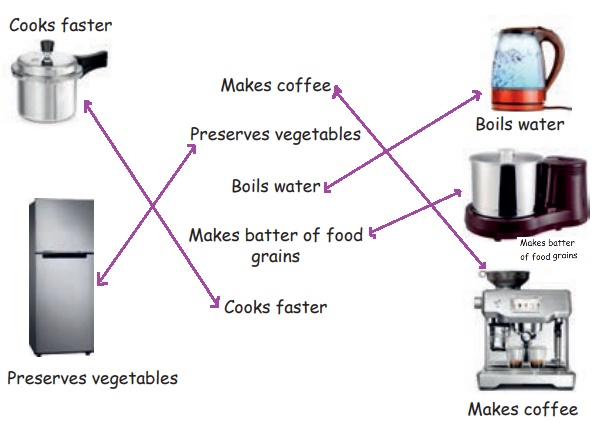
IV. Which of these
are safe to do at home? Put (✔) or cross (×) in the box.
1. Touching
electrical appliances (×)
2. Playing
with sharp objects (×)
3. Playing
in kitchen (×)
4. Keep safe
distance from the gas stove and cylinder (✔)
V. Answer in a word or
sentence.
1. How do you store fruits and vegetables
for a longer period?
We stone fruits and vegetables for a longer time by preserving
them in a refrigerator.
2.
Name the instrument used to measure temperature.
Thermometer is used to measure temperature.
3.
How is idli prepared?
Idli is prepared by the method called steaming.
4.
What is the use of black pepper?
Black pepper is a great remedy for cold and cough.
5.
Which kitchen medicine is called the poor man‛s antibiotic?
Garlic is called the poor man's antibiotic.
VI. Answer the
following.
1.
Write the uses of boiled water.
Uses of boiled water:
* Destroys germs.
* Improves digestion.
* Prevents us from the infection of water borne diseases.
2.
Write the advantages of pressure cooker.
Advantages of pressure cooker:
* Saves time.
* Minimizes the usage of fuels and saves energy.
* Retains nutrients in food.
* Preserves the appearance of food.
The doctor advices patients to have idli or idiyappam. Can you guess why?
* Idli is cooked by steaming.
* Steamed food is easily digested.
Tick (✓) the item which you see in your kitchen.
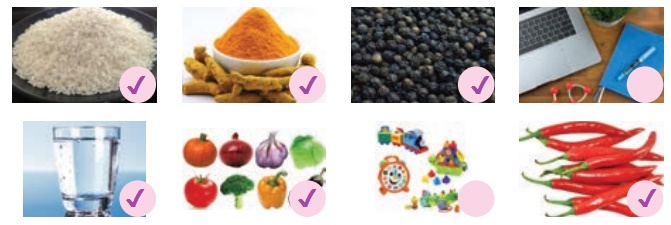
Tick (✓) the food items which are made by steaming.

Arrange the pictures in correct order.
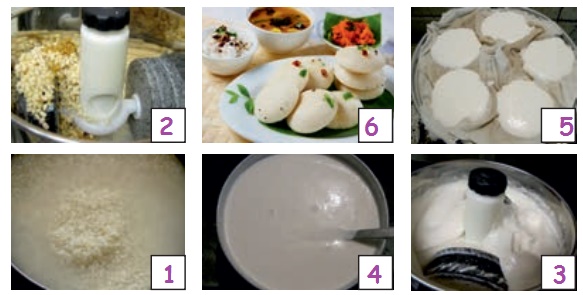
Let us Discuss
1. Which one takes less time to cook pulses?
Answer : a. pressure cooker
2. List out the food items prepared by using pressure cooker. Discuss with your friends.
Pulses, Rice, Idli, Briyani.
Match Column A with Column B.
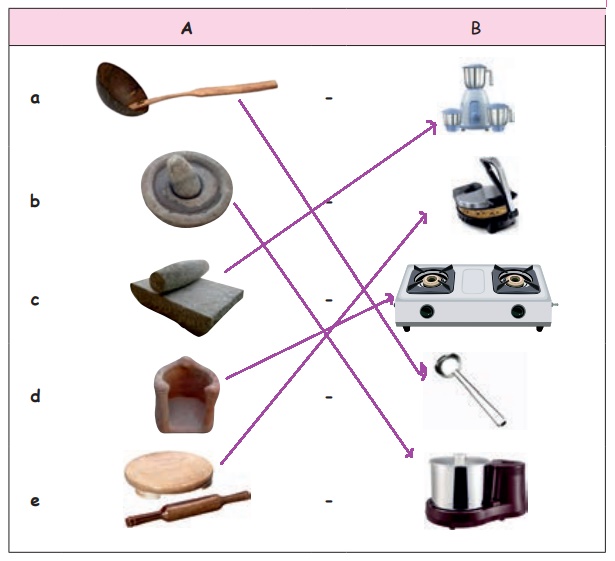
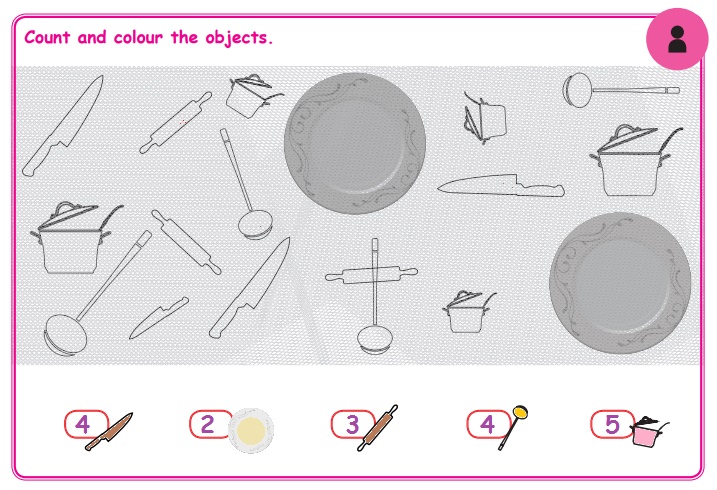
What are your favourite food items? Do you know the ingredients of them? Do they have any medicinal value? If so, fill in the table.
My favourite food: Gooseberry juice
Ingredients
Gooseberry
Ginger
Jaggery
Medicinal value
Vitamin C
Improves digestion
For what ?
To learn how the shadows are formed.
How?
1. Make the classroom dark.
2. Light a candle.
3. Place a toy near the candle. What do you see?
4. Move the toy away from the candle. What do you see? Move the toy closer to the candle. What do you look at?
5. Experiment and see what happens to the shadow if the light source is dim?

Complete the sentence:
* Moving the toy closer to the candle made its shadow Short.
* While moving the object away made its shadow Long.
* The big candle is bright and gives dark, clear shadow.
* The small is dim and gives dim shadow.
Lava in a Cup
You will Need: A tall glass cup, 1/4 cup vegetable oil, 1 teaspoon salt, water, food colour.
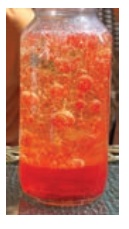
What to do?
1. Fill the glass about 3/4 with water .
2. Add about 5 drops of food colour (Red).
3. Slowly pour the vegetable oil into the glass. See how the oil floats on top.
4. Sprinkle the salt on top of the oil.
5. Watch blobs of lava move up and down in your glass! Add another teaspoon of salt to keep the effect going.
What happens when you
add oil to water?
Oil floats in water.
add colour to the mix?
It becomes coloured.
add salt to the mix?
Coloured oil bubbles rises up and goes down.
First of all, the oil floats on the top of the water because it is lighter than the water. Since the salt is heavier than oil, it sinks down into the water and takes some oil with it, but when the salt dissolves, the oil goes up again. Is it not interesting?
Let us measure the boiling point of water using thermometer
Boiling point of water is 100°C
Things Needed : Water and thermometer
Procedure :
Heat the water. Measure the initial temperature, when the water starts to boil. Allow it to boil for few more minutes, measure the temperature.
The temperature remains the same when the boiling point reaches 100°C and continues to boil for some more time.
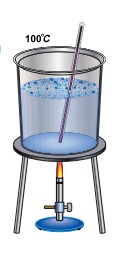
Similarly, the boiling point of milk can also be measured using thermometer.
Colour the thermometer to match the temperature written in the box.
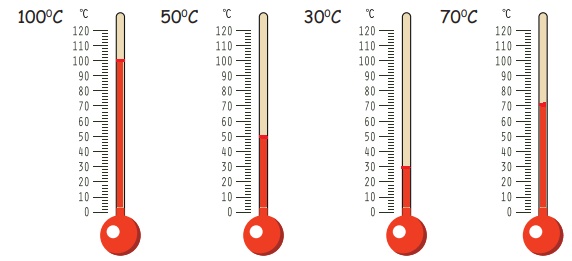
Related Topics